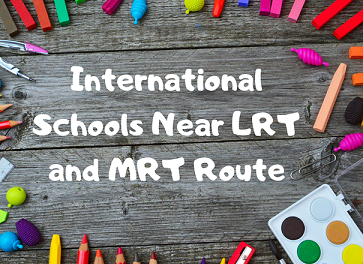In the spirit of Ramadan and Eid, we see more people, Muslims and non-Muslim alike, donating items to the less fortunate, sponsoring food drives, and essentially sharing what they have in abundance to those who need it. That is why this is the best time for you to teach your little ones the sense of goodwill and what it means to share what they have with others.
Surprisingly, studies had found that children are innately very good at sharing. If that’s the case, then by right, it should not be ‘too hard’ to bring this attribute out of them, right? But who are we kidding, sometimes, it is already a miracle if you manage to get your kids to take a turn at the swings without them throwing a tantrum or pulling faces.
Although this is certainly not the case for every kid, sometimes, negotiating with little kids can be laborious. If your child falls under this ‘cannot-be-bothered-to-share’ category or you just want to start them young, then these tips may help you to get your child into the spirit of giving.
Practice What You Preach
One thing about kids is that they learn best through modelling. They understand something better when they see someone doing it. Just bought some cookies? Share some with them. Ask them if they are happy to receive the cookies, and explain to them, that is why it is good to be generous. It makes people happy.
Rather than reminding them that ‘you need to share’, let your constant behaviour becomes their guide. When they are in a situation that requires them to share and tolerate, they would think of what would you do if you are there.
Research on role-modelling and conversations on charitable giving and volunteering had found that adolescents with parents who are involved in volunteer work are 27 per cent more likely to volunteer themselves. They are also 47 per cent more likely to do so if their parents have spoken to them about charitable giving. See? The kids really learn from watching you.
Explain to Them the Concept of Giving and Its Importance
It’s harder for kids to share if they don’t see or understand the need to. There are so many ways to do this. We can read to them books that teach them about giving, we can bring them to playdates where they can socialise, share their toys and take turns, and we could also bring them to places where the less fortunate are.
As cliche as ‘sharing is caring’ might be, it is actually a good mantra to hold onto. Remind children that when we share with others, it paints a positive view about us. If you want to be treated nicely, you should always treat people nicely and that includes sharing with those who need our help.
If anything, do not scare them by showing videos of extreme poverty and dying humans. You want them to sympathise with others, not scar them for life.
Avoid Forcing Them to Share

Even as an adult there are some things that we are uncomfortable with sharing with others, what more kids. As a parent, we should teach our kids on the boundary and option of sharing. Remind that it is not necessary for them to give everything in their possession to others. Nevertheless, emphasise on what would you feel if you are at the other person’s position. As much as this sounds like your guilt tripping a child, you want to teach them how to sympathise with others.
If they decide not to share still, it is okay. There is no need to reprimand a child for not being to grasp a concept they are unaccustomed to. After all, research shows that people feel less compelled to do the altruistic deed when they feel forced to do so. Importantly, teach them how to be nice when rejecting a request to share.
Praise Them When They Share
Like how you feel that your self-image is boosted from being complimented by your superiors, children feel the same when they are told that they are doing a job too. Unconsciously, this will make them want to share more. This what we call as ‘positive reinforcement’.
Say ‘thank you’ when they share something with you or perhaps give them a thank you hug or kiss. Tell them that you appreciate them sharing.
To read more on how positive reinforcement helps in parenting, go here.
Get Them Involved

Whenever you see someone in need or something needs fixing, get them to put on their thinking cap and ask, “What do you think we should do about this?”. Listen to their suggestions and take the initiative to help them with it.
Alternatively, you can list down some places that they can go to to help. Maybe an animal shelter, old folks home or even your local community centre. Remind children that they are making a change. No matter how the small the deed is, what is more important that is the effort they put into it. When they see the impact they are making by sharing, they will feel motivated to repeat it again.
Ultimately, it is wise to remember that being generous doesn’t equal to giving out something monetary. The concept of sharing can also be applied to knowledge and skills. If your child enjoys baking, why not get him to bake to raise money for a cause? They can offer to tutor their friends if they are good in a subject, or plant a tree if they are into nature. Let them be creative in what they can contribute to society. That way, they will find more joy in giving and do it because they like it, not because they are told to.












